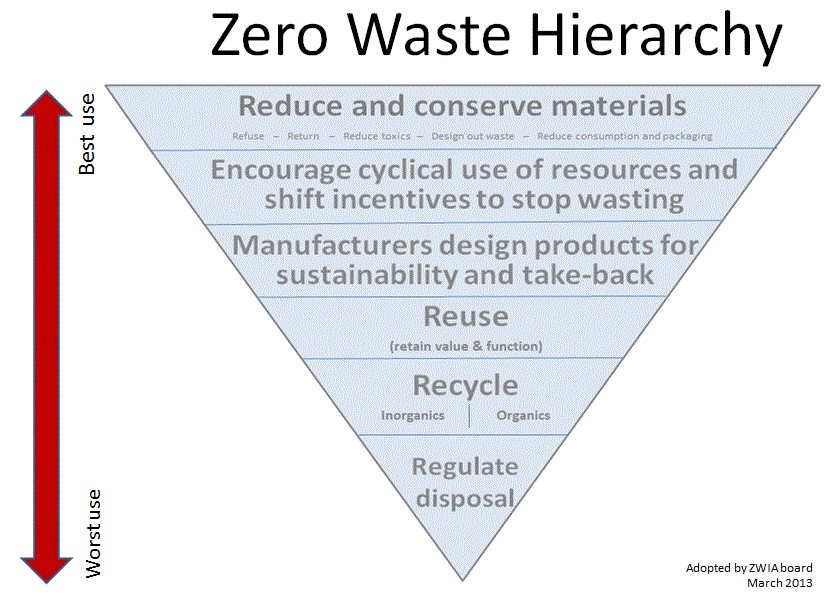View the Zero Waste video below.
Zero waste is the concept that wasting resources is inefficient and that we should strive for the most efficient use of our limited resources by transforming a linear system of resource disposal into a cyclical system of recapture and reuse. WasteCap Nebraska has made a commitment to educating and leading businesses and communities on the road to zero waste.
WasteCap’s Zero Waste Community Roadmap project is funded by Nebraska Environmental Trust to help rural communities in Nebraska with Zero Waste education and planning. We bring together community leaders to develop community-based strategies for reducing waste through policy, infrastructure, and education.
Official definition: “Zero Waste is a goal that is ethical, economical, efficient and visionary, to guide people in changing their lifestyles and practices to emulate sustainable natural cycles, where all discarded materials are designed to become resources for others to use. Zero Waste means designing and managing products and processes to systematically avoid and eliminate the volume and toxicity of waste and materials, conserve and recover all resources, and not burn or bury them. Implementing Zero Waste will eliminate all discharges to land, water or air that are a threat to planetary, human, animal or plant health.” – Zero Waste International Alliance (zwia.org).
Landfills are a top source of methane – a greenhouse gas 72 times more potent than CO2 over a 20-year period. Reduction of methane has more immediate impact on climate change and requires much smaller investments than CO2 reduction infrastructure.
o As demand for resources soars and supply dwindles, we are spending more time and energy going to the ends of the Earth in searching for resources, when their recovery could capture and repurpose them– all while creating 10x as many jobs as landfilling.
Landfill leachate contaminates groundwater with heavy metals, organic and inorganic pollutants and other toxins; making groundwater undrinkable until after costly remediation efforts, if ever.
Landfill leachate can saturate and toxify soils in surrounding areas and flammable gas can leach through the soil and cause fires and explosions near landfills.
Landfill gas contains carbon dioxide and methane – both greenhouse gases – as well as volatile organic compounds and other hazardous air pollutants that can cause cancerous illnesses and a variety of health problems in humans, and create ground level ozone which can also harm vegetation.

